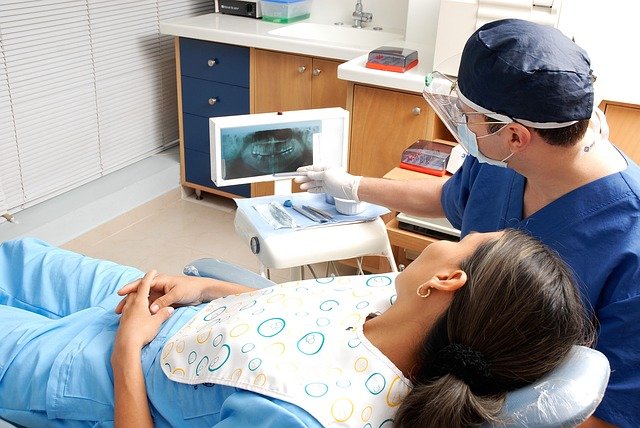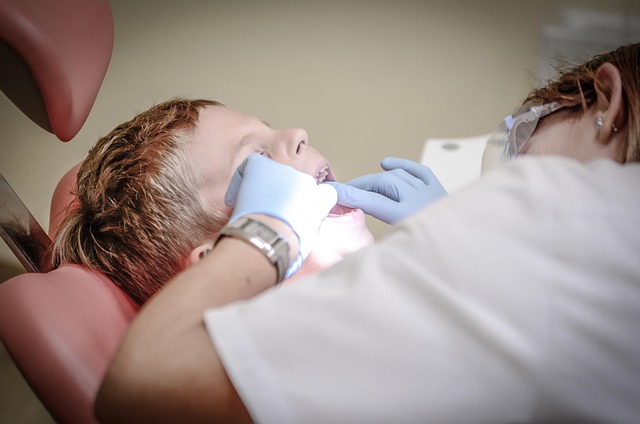Complete Guide to Dental Implants in Nepal
Dental implants have revolutionized modern dentistry by providing a permanent solution for missing teeth that looks, feels, and functions like natural teeth. This comprehensive treatment involves surgically placing titanium posts into the jawbone to support artificial teeth, offering superior stability compared to traditional dentures or bridges. Understanding the procedure, costs, and available options can help you make an informed decision about restoring your smile and oral health.

Dental implants represent one of the most significant advances in restorative dentistry, offering patients a long-lasting solution for tooth loss. Unlike removable dentures or fixed bridges that may require frequent adjustments or replacements, dental implants integrate directly with your jawbone to create a stable foundation for replacement teeth.
New Dental Implant with a Minimally Invasive Procedure
Modern dental implant procedures have evolved significantly, with many clinics now offering minimally invasive techniques that reduce recovery time and discomfort. These advanced methods often utilize computer-guided surgery and specialized instruments to place implants with greater precision and smaller incisions. The minimally invasive approach typically involves using a flapless technique, where the implant is placed through a small puncture in the gum tissue rather than creating a large surgical flap. This results in less bleeding, reduced swelling, and faster healing times for patients.
The procedure generally begins with detailed imaging and treatment planning, followed by the precise placement of the titanium implant into the jawbone. Most patients experience minimal discomfort during the procedure, which is performed under local anesthesia. The healing period, known as osseointegration, typically takes 3-6 months as the implant fuses with the surrounding bone tissue.
Everything You Need to Know About Dental Implants
Dental implants consist of three main components: the implant post (titanium screw), the abutment (connector piece), and the crown (artificial tooth). The entire process typically occurs in multiple stages over several months. First, the implant post is surgically placed into the jawbone where it serves as an artificial tooth root. After the healing period, the abutment is attached to connect the implant to the final restoration.
Candidates for dental implants must have adequate bone density in their jaw and healthy gums. Factors such as smoking, uncontrolled diabetes, or certain medications may affect the success rate of implants. A thorough evaluation by a qualified dental professional is essential to determine if you’re a suitable candidate for this treatment.
The success rate for dental implants is remarkably high, with studies showing success rates of 95-98% when properly maintained. With good oral hygiene and regular dental checkups, dental implants can last 20-30 years or even a lifetime.
Affordable Dental Implant Options Near You
In Nepal, dental implant costs can vary significantly depending on the clinic, location, and specific treatment requirements. The price typically ranges from NPR 40,000 to NPR 120,000 per implant, including the post, abutment, and crown. Several factors influence the final cost, including the type of implant system used, the complexity of the case, and any additional procedures required such as bone grafting or sinus lifts.
| Provider Type | Location | Cost Range (NPR) | Key Features |
|---|---|---|---|
| Private Dental Clinics | Kathmandu | 60,000 - 120,000 | Advanced technology, experienced specialists |
| Dental Hospitals | Pokhara | 50,000 - 100,000 | Comprehensive care, multiple specialists |
| University Dental Programs | Lalitpur | 40,000 - 80,000 | Supervised treatment, lower costs |
| Specialized Implant Centers | Biratnagar | 55,000 - 110,000 | Focus on implant procedures, modern equipment |
Prices, rates, or cost estimates mentioned in this article are based on the latest available information but may change over time. Independent research is advised before making financial decisions.
Many dental clinics in Nepal now offer financing options or payment plans to make dental implants more accessible. Some providers also offer package deals for multiple implants or full-mouth reconstructions. It’s important to consider not just the initial cost but also the long-term value, as dental implants typically last much longer than alternative treatments.
When choosing a provider, consider factors beyond cost, including the dentist’s experience with implant procedures, the quality of materials used, and the clinic’s reputation. Many successful implant treatments in Nepal are performed by dentists who have received specialized training in implantology, often from international programs.
Dental implants offer numerous advantages over traditional tooth replacement options, including improved chewing function, better speech, enhanced appearance, and preservation of facial structure. Unlike dentures, implants don’t require adhesives or special cleaning solutions, and they won’t slip or cause embarrassing situations while eating or speaking.
The investment in dental implants often proves worthwhile when considering the improved quality of life, confidence, and long-term oral health benefits they provide. With proper care and maintenance, dental implants can restore both function and aesthetics to your smile for decades to come.




